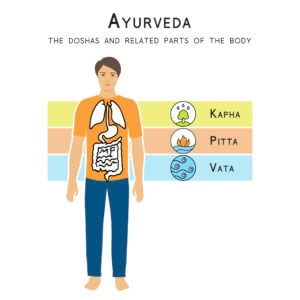Understanding the Principles of Ayurveda for Complete Well-Being
Understanding the Principles of Ayurveda for Complete Well-Being
Blog Article
Discover the Profound Advantages of Ayurveda and Enhance Your Every Day Life
Ayurveda, an old system of medicine stemming from India, uses a detailed structure for improving wellness through its all natural concepts. As we check out the complexities of Ayurveda, it comes to be obvious that its practices hold the prospective to transform daily regimens into routines of health and mindfulness, increasing the concern of how one could start to incorporate these classic principles into contemporary life.
Recognizing Ayurveda Concepts
Although Ayurveda is typically viewed as an alternate recovery system, its principles are deeply rooted in an all natural understanding of health and wellness and wellness. Central to Ayurveda is the belief that optimum health is accomplished with an equilibrium of spirit, body, and mind, stressing the interconnectedness of these elements. This old technique acknowledges that each specific possesses a distinct constitution, or "prakriti," which affects their physical, mental, and psychological health.
Ayurveda supporters for individualized methods to health, integrating nutritional standards, lifestyle adjustments, and organic treatments customized to specific needs. It encourages the usage of all-natural treatments that promote self-healing and enhance vigor. The method additionally highlights the relevance of preventative treatment, focusing on maintaining balance instead of merely treating health problem.

The Three Doshas Explained
An essential element of Ayurveda is the concept of the 3 doshas, which are crucial energies that regulate mental and physical procedures within the body. These doshas are Vata, Pitta, and Kapha, each representing special combinations of the five elements: planet, water, fire, space, and air.
Vata, defined by air and space, is in charge of activity and interaction. It regulates physical functions such as nerve, flow, and respiration impulses. People with a primary Vata dosha often tend to be innovative, energetic, and versatile, however may likewise experience anxiety and restlessness when unbalanced.
Pitta, connected with fire and water, embodies transformation and metabolic process. This dosha manages food digestion, body, and metabolic process temperature - Ayurveda. Those with a strong Pitta presence are commonly concentrated, passionate, and driven, yet they may end up being prone to irritability and inflammation when out of balance
Kapha, developed by earth and water, provides structure and stability. It is linked to growth, immunity, and lubrication within the body. Individuals with a dominant Kapha dosha are commonly tranquil, nurturing, and individual, yet they might fight with sleepiness and accessory if their power is out of balance.

Recognizing these doshas is essential for accomplishing consistency in both mind and body.
Advantages for Physical Health
Many advantages for physical wellness can be acquired from the principles of Ayurveda, which highlights a holistic approach to wellness. By concentrating on the balance of the three doshas-- Vata, Pitta, and Kapha-- Ayurveda promotes optimal functioning of the body. This customized strategy allows individuals to customize their way of life, diet regimen, and therapies according to their one-of-a-kind constitution and current discrepancies.
One substantial advantage of Ayurveda is its emphasis on preventative care. By integrating nutritional referrals, natural supplements, and lifestyle techniques, Ayurveda looks for to keep health look these up rather than merely dealing with ailment. This aggressive stance can boost resistance and decrease the threat of chronic conditions.
Moreover, Ayurvedic techniques such as yoga and reflection add to enhanced physical vitality and flexibility (Ayurveda). Using all-natural herbs and solutions can ease common ailments, enhance digestion, and boost detoxification procedures. Routine Ayurvedic therapies, such as Panchakarma, are designed to cleanse and renew the body, promoting general physical health and wellness
Inevitably, Ayurveda encourages a well balanced way of living, advertising not just physical health and wellness however additionally a deeper link in between body, environment, and mind, resulting in continual health.
Enhancing Psychological Wellness
The all redirected here natural strategy of Ayurveda extends beyond physical health and wellness, considerably enhancing mental health as well. This ancient system of medication stresses the equilibrium of the spirit, body, and mind, cultivating emotional durability and mental clearness. Central to Ayurvedic ideology is the idea of doshas, which are essential powers that influence specific constitution and mindsets. By understanding one's dosha, people can tailor their way of living and dietary selections to promote consistency within.
Ayurveda utilizes different strategies to sustain psychological health and wellness, consisting of organic treatments, meditation, and yoga. Adaptogenic natural herbs such as Ashwagandha and Brahmi are understood to reduce anxiety and enhance cognitive feature, while everyday reflection methods boost mindfulness and emotional security. In addition, yoga works as a powerful tool to ease anxiousness and advertise internal tranquility, integrating breath control and stances that line up the mind and body.
Additionally, Ayurveda motivates a balanced regimen, stressing sufficient rest, beneficial meals, and stress and anxiety management techniques. By promoting self-awareness and encouraging a link to nature, Ayurveda cultivates a resistant mind, inevitably resulting in enhanced psychological health and a deeper feeling of satisfaction in life.
Integrating Ayurveda Into Life
Incorporating Ayurveda into life can be a transformative journey in the direction of all natural health. This ancient system of medication emphasizes balance in the mind, body, and spirit, Read More Here using practical tools for boosting health and wellness and vigor. To begin, individuals can examine their one-of-a-kind dosha-- Vata, Pitta, or Kapha-- to tailor way of living options that straighten with their constitution.
Incorporating Ayurvedic concepts begins with conscious consuming. Consuming seasonal, locally-sourced foods that match one's dosha advertises food digestion and power levels. Furthermore, exercising day-to-day regimens, or dinacharya, such as waking early, oil drawing, and reflection develops a basing foundation for health.
Herbal treatments, guided by an Ayurvedic practitioner, can further sustain particular wellness worries. Including yoga and breathing exercises urges physical versatility and psychological quality.


Conclusion
Integrating Ayurveda into daily life offers a thorough structure for accomplishing alternative health and wellness and health. By understanding specific doshas and their influence on psychological and physical health and wellness, people can customize their way of living choices properly.
Central to Ayurveda is the belief that optimum health is attained through an equilibrium of spirit, body, and mind, stressing the interconnectedness of these elements.Ayurveda advocates for tailored approaches to health and wellness, incorporating nutritional standards, way of life modifications, and herbal treatments customized to specific needs.In addition, Ayurveda stresses the duty of the environment in health and wellness, identifying that external variables, such as periods, climate, and lifestyle choices, can affect an individual's wellness.The holistic technique of Ayurveda expands past physical health, considerably boosting psychological well-being.Integrating Ayurveda into everyday life supplies a comprehensive framework for achieving holistic health and wellness.
Report this page